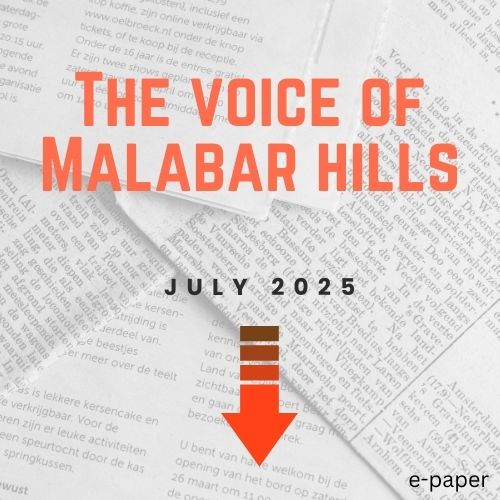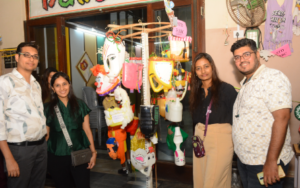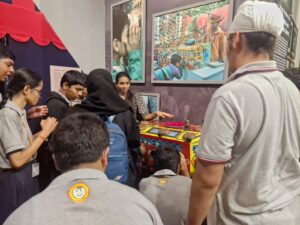Unlocking Potential Early Education & Interventionat SRCC Centre For Child Development
The Early Education & Intervention Therapy Department provides crucial and distinct services within the rehabilitation setup at SRCC Centre. The department plans targeted interventions to address the cognitive, educational, and developmental needs of individuals with special needs.
Education Therapy Dept at SRCC (CCD) runs 2 effective programs:
A) Early Education Intervention Therapy Program: Laying a Strong Foundation
Early education intervention program at SRCC Centre’s Rehab Dept. is designed for young children, typically from the age 3 yrs to 8yrs, who exhibit developmental delays or are at risk of such delays. Recognizing the critical importance of the early years in shaping a child’s future, this program provides timely and tailored support to address a wide range of developmental areas.
Our objectives set for EEIP at SRCC Centre’s Rehab Dept.
- To prepare them for the transition from EEIP to Special/Inclusive schools
- To provide them with a structured environment
- To enhance verbal and non-verbal communication skills
- To develop cognitive skills and conceptual knowledge
- To develop the social skills
- To develop motor skills
The Early Intervention program runs 3 Batches with 6 children in each batch. They come in from Monday to Friday for an hour and 45 mins. We believe in a holistic approach and towards that we include events, dance and movement therapy and play pal therapy weekly. We have certified therapists conducting these programs.
Dance and movement therapy: Dance and movement therapy has helped our EEIP kids to gain an awareness of themselves and the body in relation to the environment and their peers. They engage with their bodies in a creative and expressive way which improves how they feel, think, and relate to others.
Play Pal Therapy: “Play Pal” Therapy has developmental benefits for children, contributing significantly to their holistic growth. It promotes physical development by increasing strength and endurance and enhances fine and gross motor skills, which are essential for daily activities and academic tasks.
Concepts through activities:


Celebrating festivals:
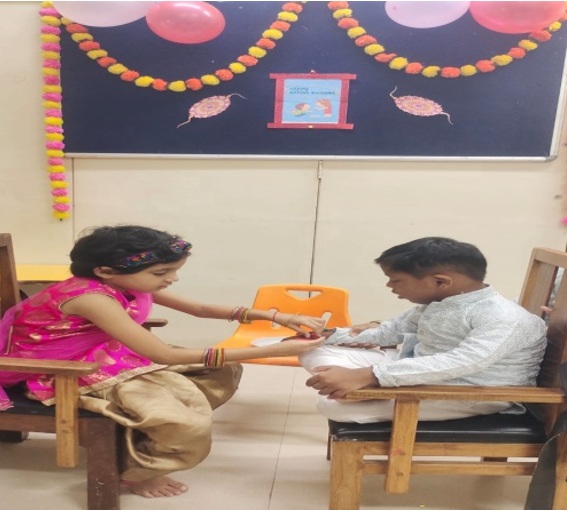

Events in EEIP: Visit to Muso
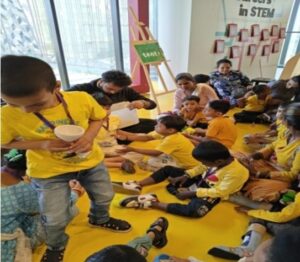
EEIP Sports Day
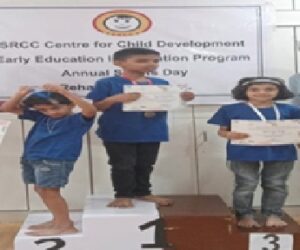
Success stories:
In our ongoing EEIP program there are remarkable changes observed by parents and which is also helping them in easy transition into various schools, amongst the cases we would like to share success stories of 2 kids who were diagnosed with autism spectrum disorder (ASD).
A parent of a child diagnosed with ASD stated that she was denied admission in a normal school and so sought admission to the EEIP program. The child attended for a year and the parents found a remarkable improvement in the child. The child’s transition to an inclusive school was easier after completion of the EEIP program.
A child with high functioning autism was placed in normal nursery but the child had severe sensory and behaviour issues and had great difficulty in settling down. They approached SRCC for admission to The Early Education Intervention Program. The parents found remarkable progress in their child after completion of the EEIP program and the transition to an Inclusive International School was made much easier.
- Remedial Therapy: Bridging the Learning Gap
Remedial therapy offers a second layer of support to school- going children who face learning challenges. Our Special Educators play a pivotal role in supporting learners facing academic difficulties. They provide targeted, tailormade programs for each learner, using sensory based and multimodal activity-based teaching aids to bridge gaps between their potential and their expected outcome. Our remedial therapy focuses on specific academic skills such as reading, writing, mathematics and comprehension. Using evidence-based methods, therapists work with children individually to reinforce foundational skills, gaining self-confidence, enhancing life skills such as logical thinking and reasoning and problem-solving skills. We aim to equip individuals with the skills and strategies to become independent and effective learners in life.
Key elements of Remedial therapy include:
Informal assessment to determine the learning gap
- Targeted Intervention
- Personalized Education Plan (IEP)
- Structured programs
- Continuous progress monitoring
- Parent-Therapist coordination
Success stories
A child diagnosed with left hemiplegic cerebral palsy with mild low vision has been receiving continuous remedial therapy at SRCC Centre since the age of three years and six months. She is now nine years old and attending third grade in a regular school. The child has shown remarkable progress due to the dedicated efforts of her parents and continuous, on-going guidance of her therapists, who have provided intensive remedial support at SRCC.
A six-year-old senior KG student with ASD struggled with concentration, exhibited restlessness, and had difficulty recognizing and writing alphabets, impacting her confidence. Following a special education assessment, remedial therapy focused on pre-concepts, vocabulary, visual perception, and letter formation through clay modelling. Visual flashcards improved her attention, and free painting facilitated emotional expression. Engaging in creative activities made learning less intimidating, leading to steady progress in alphabet recognition and writing skills. Importantly, she regained an interest in learning, and teachers noted increased classroom participation.
A 7-year-old child diagnosed with Intellectual Disability unable to cope in a regular school was detained and did not go to school for two years. The child was unable to cope, has difficulty following instructions, mingling with peers, paying attention, poor basic concepts and difficulty in writing letters. An informal assessment was done to address the concerns shared by the parents and an action plan was tailored on the pre-learning skills and cognitive skills to boost his performance holistically using multiple fun learning techniques and strategies based on the child’s interests and needs. Simultaneously the parents were given guidance on how to follow-up at home, follow schooling criteria and ways to enhance his overall skills. The child continued with therapy for one and a half year and later shifted to a special school where parents and teachers shared positive feedback regarding his development and coping in a school setup.
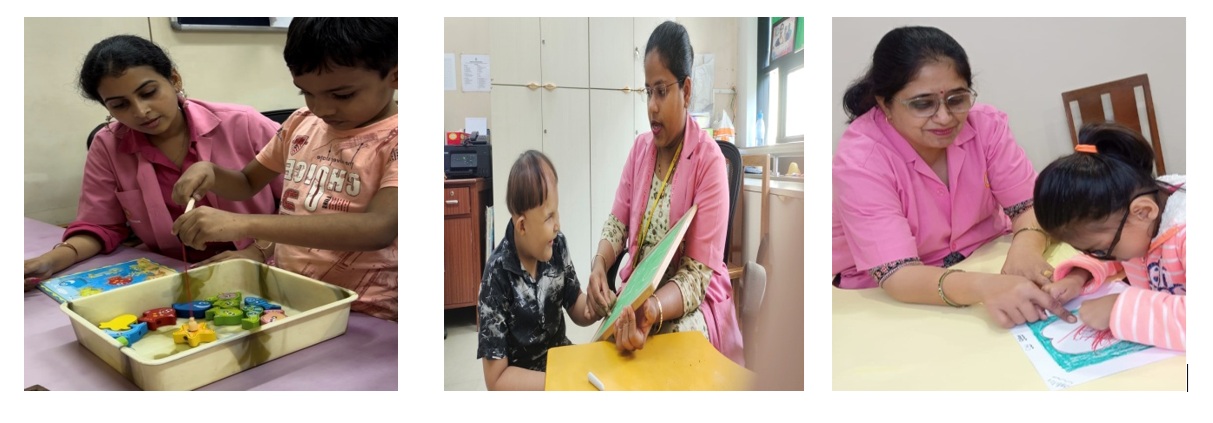
In conclusion it is seen that Education Therapy has proven to help overcome academic difficulties. It provides a collaborative environment to enhance the other skill areas of life.
At SRCC, as part of the paediatric rehabilitation, our focus is to incorporate new and proven techniques and strategies for better teaching and learning experiences.
Contact us: 8928787180/7045404822

